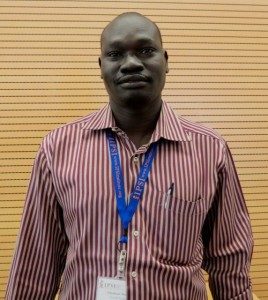By Abraham Kuol Nyuon, South Sudan
Conflict management has become very popular in virtually all national contexts today because conflict is  found in all aspects of international relations. The formation of various regional blocks within the continent of Africa, Europe and America is an indication of how nations would like to interact peacefully in the international system. One of the methods frequently applied today in conflict resolution among states and institutions is international mediation theory.
found in all aspects of international relations. The formation of various regional blocks within the continent of Africa, Europe and America is an indication of how nations would like to interact peacefully in the international system. One of the methods frequently applied today in conflict resolution among states and institutions is international mediation theory.
Dr. Joyce Neu (First Team Leader for the UN’s Standby Team of Mediation Experts) introduced the concept of international mediation theory to the participants at the IPSI 2013 Bologna Symposium, by assessing participants’ level of understanding the conflict context. On her request to participants to show by raising hands those who come from conflict prone areas, it was obvious that those from Sudan, South Sudan, Colombia, Syria, Nigeria, Zimbabwe and Kenya, identify themselves with conflict situations. Thereafter, Dr. Joyce Neu began by creating the essence of international mediation theory in conflict resolution, giving some examples of her work in the field of mediation and asked participants if they would want to be professional mediators in the future. She encouraged those who were skeptical about their abilities as mediators due to lack of professional background in the academic field of social sciences, arts and humanity, to venture into the field as long as they are willing and committed to the task of international mediation.
Dr. Neu was both academic and professional in her approach to mediation theory. She provided various definitions of mediation theory by key scholars such as Crocker, Hampson, Touval and Zartman. One key definition which I was very familiar with is mediation as a facilitated negotiation by impartial thirty party. Second aspect of mediation theory she dealt with was the concept of track diplomacy. When I saw the writing projected on the screen about track diplomacy, what came into mind was the three track diplomacy model by Paul Lederach which includes:
- track one, dealing with high level mediation between government officials;
- track two as middle-level activity dominated by civil societies and other influential agencies as well as the individual in the society; and
- track three dealing with grass-roots mediation in skillful collaboration with track two and track one mediation.
These dynamisms provoke multiple turbulent processes that stir up various actors at different levels to get involved in the process of international mediation. Thus, track three mediation is a catalyst of peace processes given its closer contact with community and outside connection. Dr. Joyce Neu took me beyond track three diplomacy by John Paul Lederach to multi-track diplomacy by Louise Diamond and John McDonald presented by Dr. Joyce Neu which includes official, unofficial (Professional Conflict Resolution), business, private citizen, research, training, education, activism, religious, funding, public opinion/media. This adds to my knowledge on the concept of international mediation by examining issues which were not covered well in Lederach’s track diplomacy.
The third issue we dealt with was Christopher Moore’s twelve stages of mediation moves which includes establishing relationship with disputing parties, selecting the strategy, collecting and analyzing background information, designing a detail plan for mediation, building trust and cooperation, beginning the mediation, defining issues and setting the agenda, uncovering hidden interest, generating option for settlement, assessing option for settlement, final bargaining and achieving formal settlement.
Last but not least, the session engaged in an open discussion of the Syrian conflict. Dr. Joyce gave an overview of the Syrian conflict especially from the perspective of Syrians and outsiders. This introduction to the Syrian conflict was complemented by input from a participant from Syria, who gave us an internal perspective of the conflict. The role of media in the Syrian conflict was also highlighted. In conclusion, I would like to express that I am happy to be part of Bologna Symposium on Conflict Prevention, Resolution and Reconciliation. It is a nice experience to be here.

